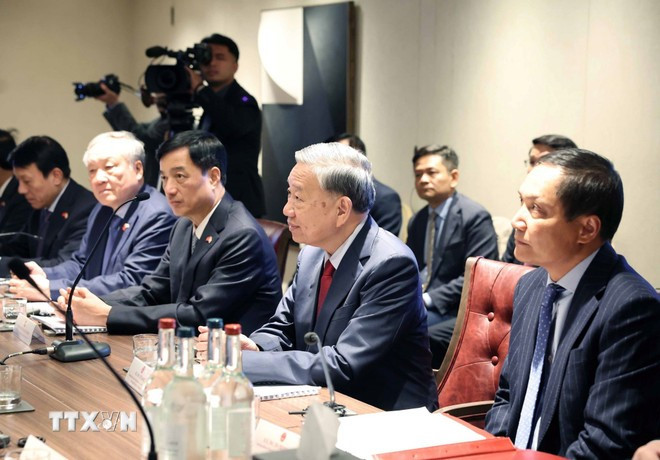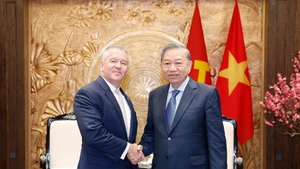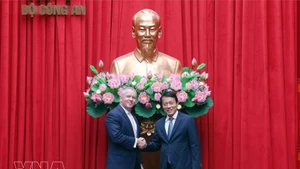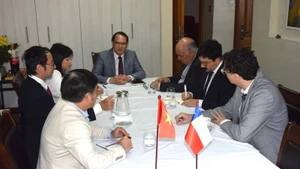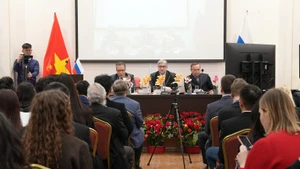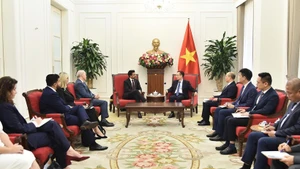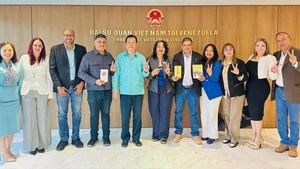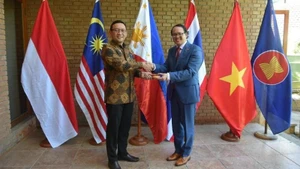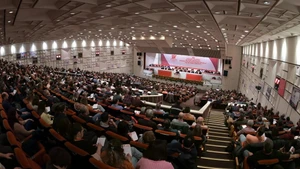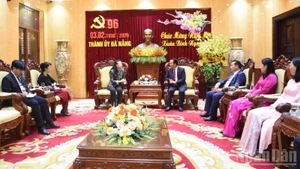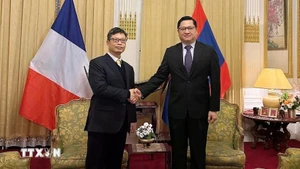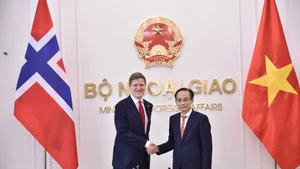The seminar, co-organised by the Boston Global Forum (BGF), is a strategic step to promote cooperation between Viet Nam and technology powers in the AI era, while affirming the country's position in global digital transformation.
With its aspiration to become a pioneer in digital economy, Viet Nam seeks to learn from the UK – the cradle of the Industrial Revolution and the homeland of great minds such as Isaac Newton, John Locke, Adam Smith, Alan Turing, William Shakespeare, and Charles Dickens – to build an innovative, human-centred, and sustainable technological ecosystem.
In his opening remarks, General Secretary Lam expressed his pleasure at meeting and listening to the insightful and practical ideas of experts and strategists in London. He emphasised that the world is witnessing remarkable advancements in science and technology, with AI emerging as a key driver of economic growth and innovation.
Viet Nam has identified science, technology, and digital transformation as top breakthroughs to achieve rapid and sustainable development, and rise in the global value chain. Therefore, the country wants to work with advanced nations to share common visions and values, building a better world where AI serves humanity and promotes creativity, compassion, peace, and prosperity, he said, affirming that Viet Nam is ready to embrace and experiment with pioneering ideas.
At the event, technology experts praised Viet Nam’s dynamic development, given that within just one generation, Viet Nam has lifted millions out of poverty, built one of Asia’s most competitive manufacturing economies, and developed a young, digitally skilled workforce. In particular, Viet Nam’s progress in administrative reform and its openness to international cooperation have positioned it as a key partner in the global network of trusted digital nations.
Some also suggested that, for AI to truly serve socio-economic development and improve people’s lives, governments must focus on building reliable digital infrastructure and developing responsible AI standards that safeguard privacy, fairness, and transparency. Concluding the seminar, General Secretary Lam said he was impressed by the insights and ideas shared by the leading experts and managers with extensive AI-related experience.
The proposed solutions and recommendations presented at the event highly match Viet Nam’s development orientations and goals, the leader said, adding that relevant Vietnamese agencies will study the proposals in detail and engage in joint work to translate them into projects and programmes in Viet Nam.
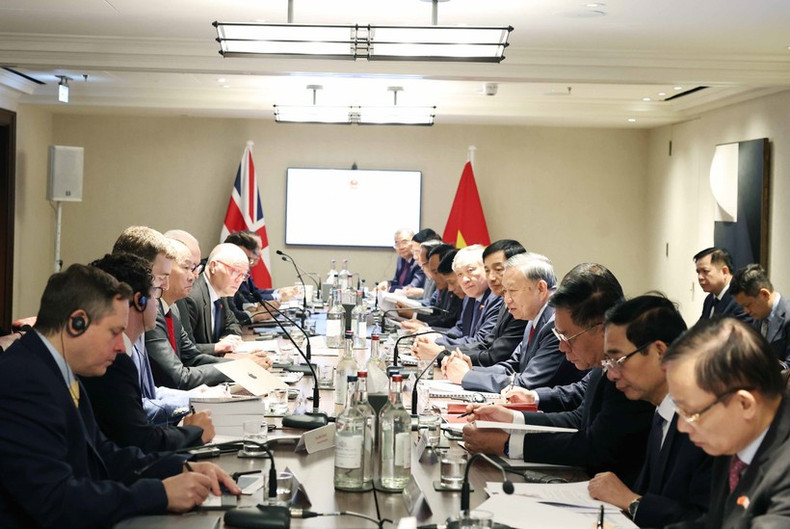
The Party chief stressed that the seminar marks a meaningful beginning, paving the way for long-term and substantive cooperation between Viet Nam and the foremost thinkers and institutions of the UK and the world.
General Secretary Lam expressed his hope that in the time ahead, the experts will continue accompanying and supporting Viet Nam’s efforts in AI and science – technology development. He identified three priority areas for collaboration, including knowledge and experience sharing in formulating a national AI strategy and developing digital infrastructure and an innovation ecosystem; the promotion of investment, technology transfer, and AI application in key sectors such as health care, smart agriculture, and digital education; and the joint implementation of major science and technology programmes, especially in emerging and pioneering fields, to help Viet Nam build a creative and self-reliant economy.
He also extended an invitation to the experienced scientists and experts in science, technology, and AI to visit Viet Nam for exchanges and direct collaboration with local policymakers and research institutions. Through such engagement, the ideas discussed at the roundtable will be transformed into reality, bringing about new values, models, and confidence for humanity in the age of AI.
